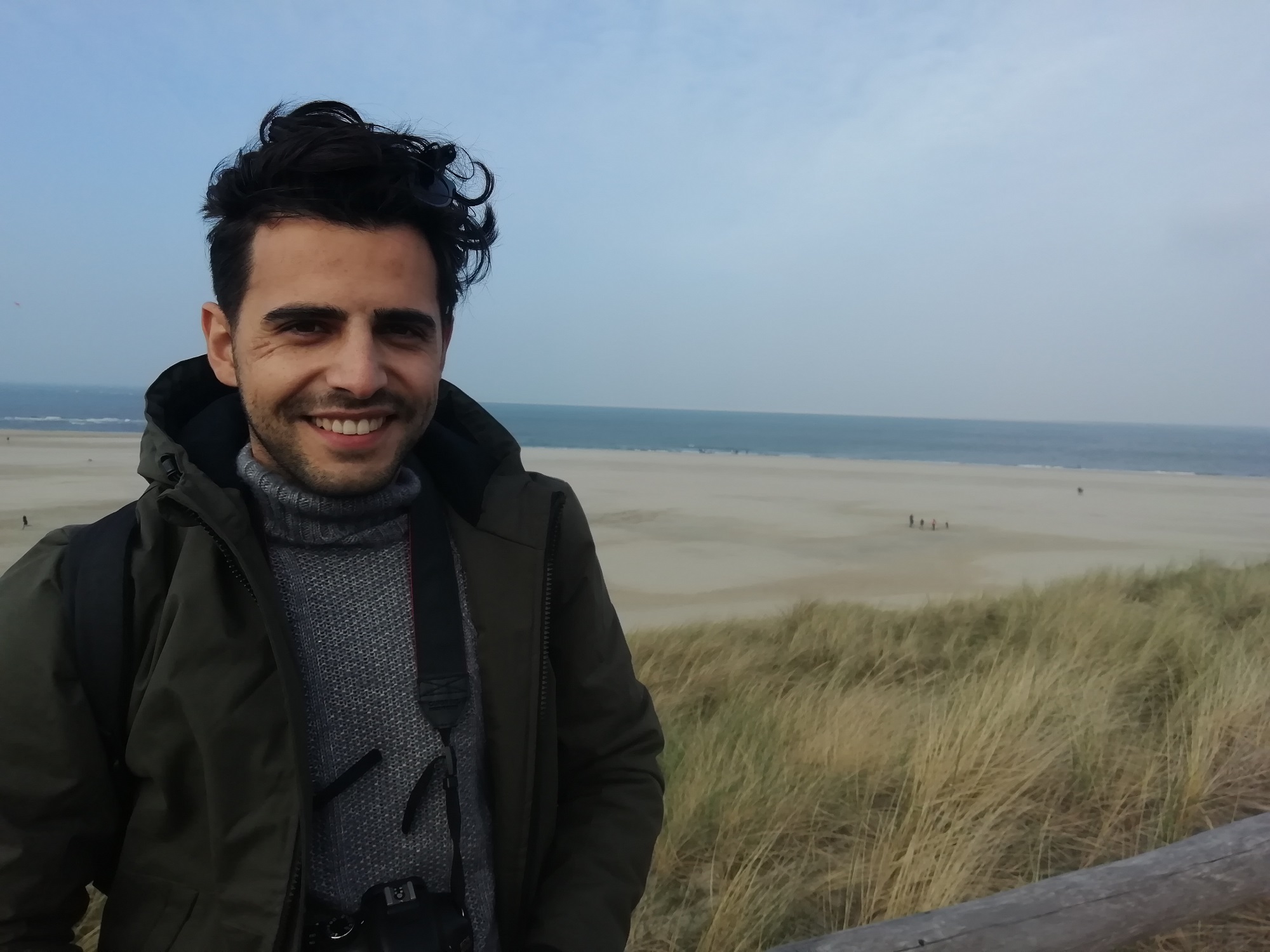Being a patient in the ICU can be stressful with so many alarms sounding. Salvo Cucinella hopes his research helps makes it a little better.
Salvo Cucinella : “The first time I entered the ICU at a hospital at Erasmus Medical Center it was like I was in the right place.” (Photo: Private collection)
“I came to TU Delft three years ago to do a master’s in Design for Interaction. When I arrived, it was a totally different world from what I was expecting. I had a beautiful experience coming here and got motivated about the topic of healthcare.
During my master’s, I did a specialisation in medical design and my graduation project was on a healthcare related problem. It gave me the opportunity to understand who I am as a designer and who I want to be in the future as a professional in this field.
I started to collaborate with Dr Elif Ozcan Vieira at the Critical Alarms Lab (CAL). She gave me an incredible opportunity to enter an Intensive Care Unit for the first time in my life as a researcher. The first time I entered the ICU at a hospital at Erasmus Medical Center it was like I was in the right place. The focus of the CAL is how to make the ICU quieter to improve well-being for both patients and the medical staff.
I decided to focus only on patients and the experience that they have. They are basically forced to stay in a bed and they don’t have control of anything. One of the problems is that they are surrounded by many alarms and they lack the knowledge to properly interpret them. Alarms are perceived as a threat and appraised as dangerous. Therefore, many patients are continuously in a state of anxiety and under stress. Alarms are a source of acute stress responses, and continuous exposure may contribute to developing chronic-stress conditions and increasing the risks of mental health problems.
‘Testing your solution is difficult in hospitals’
I thought perhaps I could design something to help these people. So, I started my graduation project and I developed a concept which is about reducing the anxiety that is provoked by medical alarms. I faced one of the problems that designers often face when they work in a context like hospitals, which is having access to test your solution with real people. It’s really difficult because you need to go through a medical ethical committee, obtain permissions and that requires a lot of time. But I didn’t have time.
We decided to go for virtual reality and I went to the VR Zone lab and spoke with the coordinator Arno Freeke and he was amazingly helpful. So, we went to the hospital and made some sample video recordings of a patient in a single bedroom. For my graduation project I tried to evaluate the impact of my solution using this VR environment. I was measuring the psychological and physiological reaction to the alarms.
I finished my graduation project and my supervisors told me there was funding at TU Delft for research about stress. And it felt like I was in the right place at the right time with the right people. They gave me the opportunity to keep doing research on a specific aspect of my graduation project which is about understanding whether a correlation exists between objective and subjective stress measurement methods and how such measurements can be performed in a Virtual Reality Intensive Care Environment. I’m currently working on some experiments and still looking for participants.
My research is mainly on how people respond to exposure to medical alarms in different conditions to better understand the effects of medical alarms at a psychological and physiological level. The method might be used in the future to measure users’ experience in VR. I believe that the knowledge that we will create is going to be useful for many different reasons.”
Who are the people who work and study on campus? We meet them in Humans of TU Delft. Want to be featured in Humans of TU Delft? Or do you know someone with a good story to tell? Send us an e-mail at humansoftudelft@gmail.com
Heather Montague / Freelance writer



Comments are closed.